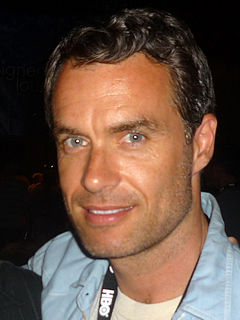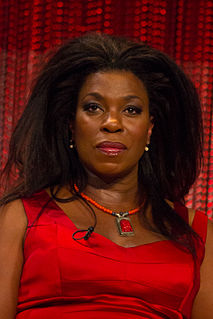A Quote by Michael Josephson
Character - We describe the character of a person in reference to moral judgments about the worthiness of a person. Thus, to have a strong, great or honorable character is to be a person of merit, worthy of admiration and honor.
Related Quotes
A character does seem to have a life of its own, but I have what I'd describe as a very fluid relationship with them - as I'm thinking of what they will be like, they shift in and out of focus - they are a projection of some idea inside of me, even if a character is inspired by an actual person, I'm well aware that it is not that person. My job is to identify the essence of the character, and to bring them to life long enough to commit the acts, say the words or simply "be" in a way that allows them to affect and be affected by other elements and events in the imaginary world of a story.
And it interferes with your ability to be a good actress if you're constantly aware of yourself as a person. To me, it isn't valuable to think about how I'm coming off all the time if I'm trying to create a character, because that's a process that I love. It's like falling in love and surrendering to another person or a character.
For me, personally, I'm more comfortable with what I would call third-person entertainment, meaning watching a character that's explicitly not me and experiencing something through a character's eyes, than what I would call first-person entertainment, which is a video game in which I am the character.
I think you should identify with your character, but plenty of people like themselves and hate themselves. You just have to find out what's truthful for the person you're playing. When people talk about that, I think what they're saying is that as an actor, as Peter, you don't want to make a judgment that comes from your worldview about the character. Your judgments should be coming from the place of the character, and within that space, sure, you could love or hate yourself or whatever you think is most appropriate.
What a person says and does in ordinary moments when when no one is looking reveals more about true character than grand actions taken while in the spotlight. Our true character is revealed by normal, consistent, everyday attitudes and behavior, not by self-conscious words or deeds or rare acts of moral courage.





























